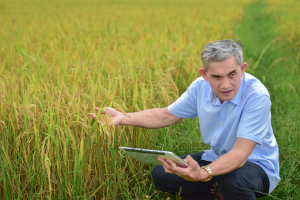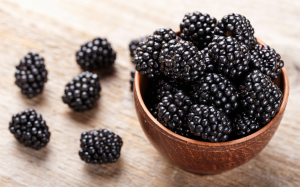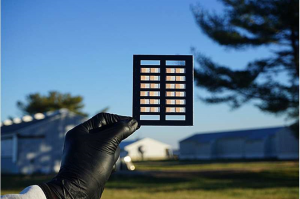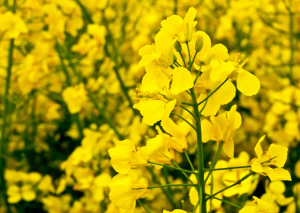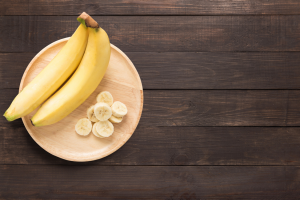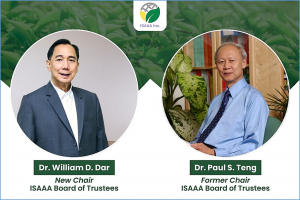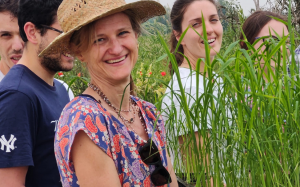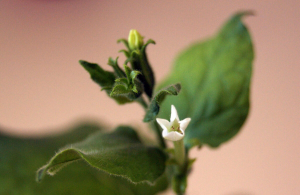Researchers from Shanghai Jiao Tong University in China and partners explored the role of circular RNAs in rice and their interaction with pathogenic bacteria. Before their investigation, the regulatory mechanisms of circular RNAs in such interactions were unknown. Knocking down circular RNAs in plants has been a challenge because their sequences are similar to their parent genes. To address this, the research team developed a CRISPR-Cas13d system to specifically target and reduce the expression of a rice circular RNA named Os-circANK.
Pairwise, a US-based company pioneering the application of CRISPR technology in food and agriculture, has developed the world's first seedless blackberry using the company's proprietary Fulcrum™ Platform, a complete suite of novel tools for CRISPR application in plants. The breakthrough is the first time seedlessness has been achieved in any caneberry. Ryan Bartlett, Pairwise Chief Technology Officer said their scientists used their deep knowledge of plant genetics
Scientists from Purdue University developed a biosensor that can detect fecal contamination on fresh produce farms. Their innovation aims to promote food safety in the agricultural industry. Farms that have nearby wildlife or animal operations are at risk of acquiring pathogens on their crops. When the plants are tested positive for pathogens, they are quickly discarded to ensure food safety. However, it is difficult to detect pathogens in trace amounts while adhering to regulatory requirements.
Australia's Office of the Gene Technology Regulator (OGTR) has received license application DIR 205 from the Commonwealth Scientific and Industrial Research Organisation (CSIRO) to conduct a field trial of genetically modified (GM) canola with increased abiotic stress tolerance. The field trial is proposed to take place between May 2025 and December 2030, on up to 3 sites per year with a maximum area of 1.5 hectares (ha) for each site in the first year and 2 ha for each site in the subsequent years.
New banana varieties with improved reduced-browning characteristics have been determined as non-genetically modified organisms (GMOs) in the Philippines. The Certificates of Non-Coverage from JDC No. 01 s. 2021 was granted by the Department of Agriculture – Bureau of Plant Industry (BPI) on June 21, 2024. The reduced browning bananas (TRB011001 and TRB011002) were developed by Tropic Biosciences using the CRISPR-Cas9 gene editing system.
ISAAA Inc. recognizes Dr. Paul S. Teng who has been the Chair of ISAAA Board of Trustees from 2013 to June 1, 2024. Dr. Teng has been the Dean and Managing Director of the National Institute of Education International at Nanyang Technological University (NTU) in Singapore since 2018. He previously held other leadership positions at the same institute since 2004.
Researchers from New York University Langone Health developed a new method that can detect molecular changes in DNA before they become permanent mutations. Most mutations originate in DNA changes that are found in only one DNA strand. These changes are the result of a DNA strand that is incorrectly copied during replication or when a strand is damaged due to heat or chemicals in the body. Unfortunately, single-strand changes cannot be identified using existing testing methods.
Media coverage of genetically modified organisms (GMOs) has significantly affected public perception of the technology. A study published in GM Crops & Food explores the evolution of media reportage on GMOs in Ghana following the approval of Bt cowpea, the country's first GM crop, in 2022. The study analyzed GMO stories reported by three major digital news outlets in Ghana from January 2021 to December 2023 using eight keywords to identify relevant articles,
Researchers from the University of Milan have initiated the first field trial of gene-edited crops in Italy for a new rice variety named “RIS8imo,” a modified version of the Italian Arborio rice commonly used in risotto. Researchers targeted three genes exploited by the rice blast fungus and removed small parts of the DNA code to render them ineffective for the pathogen. Small fragments of DNA were removed from RIS8imo to enhance its resistance against the rice blast disease, a severe threat to cereal crops globally.
A study led by scientists from the University of California Berkeley, and the University of California, Davis demonstrated the potential of genetically engineered plants to produce prebiotic sugars found in human breast milk. The findings of the study, published in Nature Food, could provide significant insights into producing a healthier, non-dairy plant milk alternative for babies.


 Curently online :
Curently online :
 Total visitors :
Total visitors :
